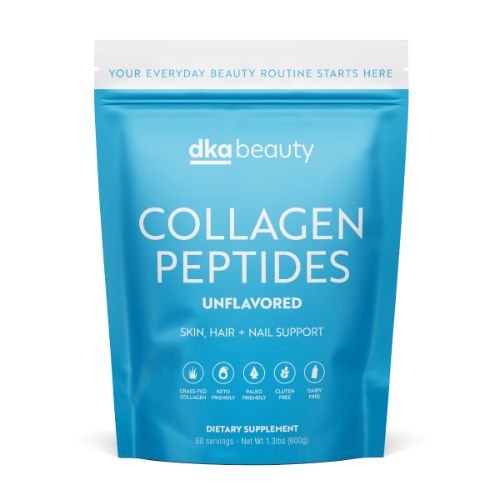Collagen powder has gained popularity as a dietary supplement for its potential benefits in promoting skin health, joint function, and overall well-being. However, like any other consumable product, it’s essential to understand the shelf life and expiration of collagen powder to ensure its effectiveness and safety.
In this blog post, we will explore the topic of collagen powder expiration, including factors that can affect its shelf life and proper storage recommendations. By understanding these aspects, you can make informed decisions about the usage and freshness of your collagen powder.
Table of Contents
What is Collagen Powder?
Collagen powder is derived from collagen-rich sources such as bovine, marine, or poultry, which undergo a process to extract the collagen protein. This protein is then hydrolyzed, breaking it down into smaller peptides that are easier for the body to absorb. Collagen powder is typically sold in a powdered form, allowing for convenient mixing into beverages, smoothies, or other recipes.
Does Collagen Powder Expire?
Yes, collagen powder does have an expiration date. While collagen powder is known for its long shelf life compared to perishable foods, it is not immune to degradation over time. The expiration date is an indication of the period during which the collagen powder is expected to retain its potency, quality, and efficacy.
Factors Affecting Collagen Powder Shelf Life
Several factors can influence the shelf life and expiration of collagen powder. It’s important to consider the following:
- Packaging: The packaging of collagen powder plays a vital role in preserving its freshness. Look for products that come in airtight, resealable containers or packaging to minimize exposure to air, moisture, and light.
- Storage Conditions: Proper storage conditions are crucial for maintaining the quality of collagen powder. Store it in a cool, dry place away from direct sunlight, as exposure to heat, humidity, and light can accelerate the degradation process.
- Quality and Manufacturing: The quality of the collagen powder and the manufacturing process can impact its shelf life. Choose reputable brands that adhere to strict quality control measures, ensuring that the product remains stable and effective for a longer duration.
Understanding Expiration Dates
Expiration dates on collagen powder packaging indicate the timeframe within which the product is expected to be at its peak freshness and potency. It’s important to respect these dates and consume the collagen powder before the indicated expiration date for optimal results.
Using Expired Collagen Powder
Consuming expired collagen powder is not recommended, as it may have reduced efficacy or potential safety concerns. Expired products may have undergone chemical changes, loss of potency, or become more susceptible to microbial growth. To ensure safety and effectiveness, it is best to discard expired collagen powder and obtain a fresh supply.
Proper Storage Recommendations
To maximize the shelf life and freshness of collagen powder, consider the following storage recommendations:
- Keep it airtight: Always seal the container tightly after each use to minimize air exposure and prevent moisture absorption.
- Store in a cool, dry place: Choose a storage location away from direct sunlight, heat sources, and moisture, such as a pantry or kitchen cabinet.
- Avoid contamination: Use clean, dry utensils to scoop the collagen powder, and avoid introducing moisture or foreign particles into the container.
- Follow product-specific instructions: Some collagen powder products may have specific storage instructions provided by the manufacturer. Follow those guidelines for the best results.
Conclusion
Collagen powder, like any other consumable product, does have an expiration date. It’s important to respect the indicated shelf life and storage recommendations to ensure the product’s potency, quality, and safety. By choosing high-quality collagen powder, storing it properly, and using it before the expiration date, you can enjoy the potential benefits of collagen supplementation to support your health and wellness goals.
Remember to always check the expiration date on the collagen powder packaging before purchasing or consuming it. Be mindful of proper storage conditions, such as keeping it sealed in an airtight container and storing it in a cool, dry place away from direct sunlight and moisture. Following these guidelines will help maintain the quality and effectiveness of your collagen powder for a longer period.
If you notice any changes in the color, odor, or texture of the collagen powder, or if it has exceeded the expiration date, it is best to discard it and obtain a fresh supply. Using expired collagen powder may compromise its efficacy and safety.
In conclusion, collagen powder does have an expiration date, and proper storage is essential to maintain its freshness and quality. By understanding the factors that can affect its shelf life and following the recommended storage practices, you can ensure that your collagen powder remains potent and effective throughout its intended lifespan. Incorporate collagen powder into your daily routine as part of a well-balanced diet and lifestyle to potentially reap the benefits it offers for your skin, joints, and overall vitality.

